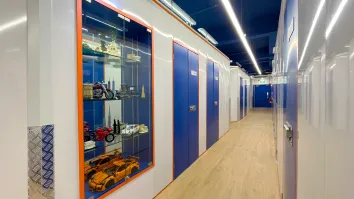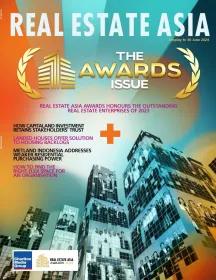
Indonesian office tenants downsizing by up to 30% upon lease renewal
They’re also asking for further lease flexibility to manage risks.
Colliers recently released a report on how corporations transform their work culture and adapt their operation strategies to maintain their company’s objectives.
Since the current market condition has changed many aspects on a global scale, it has also changed the landscape of workplaces. Nowadays, the form of a workplace can be flexible, where people may choose to work from outside of their office as long as it complies with their company policy.
Bagus Adikusumo, Head of Office Services of Colliers International Indonesia, mentioned: “With the efficiency in occupancy costs and the implementation of work-from-home that are both likely to continue for the next couple of years, renegotiating the lease contract is the first thing that will occur, including a possible rental reduction and early lease renewal.”
Business Objectives and Work-From-Home (WFH) Policy
One of a company’s objectives is to protect the bottom line and ensure sustainability. In uncertain times, it is necessary for a company to adopt appropriate strategies in line with the prospect of its business and the resources available at its disposal.
With the common implementation of a work-from-home policy by corporations nowadays for health and safety reasons, many corporations have realised that through technology, businesses can continue to operate without requiring all employees to report to the office. This realisation has led occupiers to reconsider their office space needs and therefore is affecting the decision of the future of office leases.
Generally, many companies are currently facing a situation whereby their office space is not being used optimally due to the COVID-19 pandemic that has forced many employees to apply a work-from-home strategy. Many companies are trying to reduce their space and renegotiate with their landlord; some are able to find a compromise and some are not. When the lease is expired, the majority of the tenants will renew their lease by downsizing their space by up to 30% and ask for further lease flexibility as a way of managing risk.
Hendry Sugianto, Head of Project Management of Colliers International Indonesia, mentioned: “Workplace transformation does not only affect the office lease but also the arrangement of work activities. To determine the optimum areas for a new workplace requires transformation strategies with activity analysis from various departments.”
Closed space vs. Open space
Changes in the workplace layout also influence the decision of whether the company still needs to keep a closed space or whether an open space is more efficient. How open and how casual the office setting is depends upon the company culture. Though some companies maintain enclosed offices for very senior executives or the board of directors, the approach has shifted with the open workstations of regular employees facing the windows. However, some offices have in fact done away with closed offices completely to remove barriers and to provide better communication between senior leaders with their team members. There are also informal open meeting rooms commonly referred to as ‘collaboration areas’.
What are the “new norms”?
Over time, something new has developed, called the “agile workplaces”. Agility will play a role, so that in the future it will not be surprising if an office building is divided into three; traditional lease, self-managed co-working space, and co-working space managed by externals. The new norms become relative. It depends on the company's needs, the business, the strategy plan, and the culture of the company itself. They need to be in line with the prepared business goals or long-term key goals. An ideal workplace should provide a variety of work settings with a focus on facilitating both concentration and collaboration, supporting your teams in their delivery of individual work, while enabling collaboration with colleagues.
Download the full report here.



















 Advertise
Advertise






